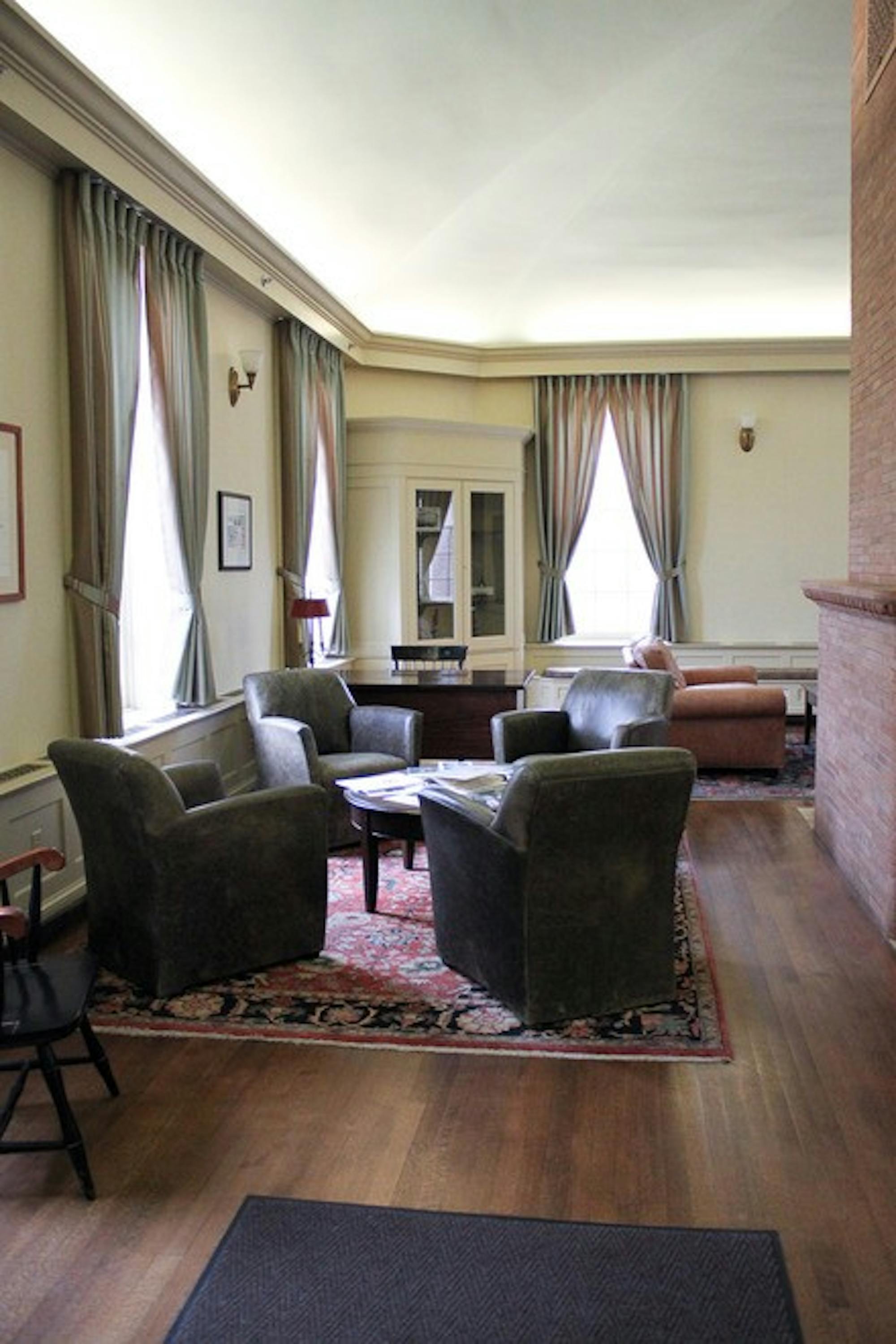Last year, the Geisel School interviewed about 57 percent of the Dartmouth students who applied, compared to an overall interview rate of roughly 15 percent. The Geisel School interviews approximately 750 students out of a pool of about 5,200 applicants each year.
Dartmouth is the most heavily represented undergraduate institution in Geisel School classes, as the medical school has welcomed roughly nine students who graduated from the College every year since 2002. Class size in recent years has been an average of 90 students, and the current first-year class has 13 College graduates.
Dartmouth students are given priority in receiving interviews because of the connection between the Geisel School and the College and because they have historically performed well in medical school, according to Senior Associate Dean for Medical Education Richard Simons.
"We feel that the College prepares students well for medical school," Simons said. "They have very good entrance requirements, and when the decision is being made for acceptance, they get an extra sort of plus in the column in terms of the decision to admit or not."
Nearly every applicant to medical school from the College applies to the Geisel School due to the admissions advantage, according to pre-medical advisor Lee Witters, who teaches at both the College and the medical school.
"That's actually the big hurdle in getting into medical school is getting invited to an interview," Witters said.
The Geisel School's new early assurance program, which offers binding early admission to up to five College juniors after graduation, will likely increase interest in the coming years and could result in an increase of Dartmouth students in each medical school class, Witters said. The Geisel School is currently in the process of choosing its first group of early assurance students.
Hertel said that it is difficult to predict what impact the early assurance program will have on class numbers. The five guaranteed admissions are not additional spots and may not necessarily increase the number of future applicants from Dartmouth, he said.
Grace Russo '14, co-coordinator of the Nathan Smith Society, the College's pre-medical society, said that early assurance is a "critical move" to increase Dartmouth students' interest in the Geisel School. Russo said she believes the program is a significant step toward integrating the undergraduate and medical campuses.
Exposure to the Geisel School through various outreach programs organized by the Nathan Smith Society and the medical school also contributes to the number of Dartmouth applicants, Witters said. A physician shadowing program with 70 doctors from Dartmouth-Hitchcock Medical Center, a "Take a Med Student to Lunch" program, an annual dinner with the director of admissions and a "Mock Admissions Night" are among the opportunities available to undergraduates, Witters said.
"Many students are doing research with medical school faculty, and there are lots of interactions, so they come to know the institution well and have an inside look," he said. "Plus, the opportunity to talk to previous college grads who are now part of the medical school body will increase interest."
Former College President Jim Yong Kim's efforts to bring the professional schools in closer contact with the College has further integrated the Geisel School and Dartmouth, according to Geisel School professor Mark Splaine Med'91.
"Many years ago there was not as strong a connection between the undergrad experience and the professional schools, and I think that's changed," Splaine said. "I hope that we continue to move in the direction of one Dartmouth' and that this will hopefully encourage and excite students to remain at Dartmouth and be a graduate student in some area."
Splaine said that several faculty members at the Geisel School are interested in teaching more courses at the undergraduate level and in ensuring that opportunities available to graduate students are open to interested Dartmouth students, as well.
Many of the Geisel School faculty, including members of the admissions committee, participate in Nathan Smith Society events and work with its student members, according to Hertel. Director of Admissions Andy Welch '78 is available to Dartmouth students and graduates for individual meetings and advising sessions, and he collaborates with the Office of Pluralism and Leadership to conduct workshops for international students interested in the Geisel School.
The opportunity to get to know the Geisel School and its students can be a significant influence on undergraduates' interest in the institution and their decision to remain in Hanover for graduate school, according to Ryan Tibble '14, a member of the Nathan Smith Society executive committee.
"There's an interest in Geisel among the pre-meds, but four more years in Hanover can be a drawback for some," Tibble said. "A lot of people do give [Geisel] a serious amount of consideration."
Jackie Shameklis '10, a second-year Geisel School student, said that there is a more direct connection between the College and the medical school that did not exist during her application process.
"The first time I walked through the [Geisel School] campus was for my interview," Shameklis said. "The same Nathan Smith Society programs existed, but [the Geisel School] didn't do any special recruiting."
Russo also said that the increase in outreach by the Geisel School through programs such as early assurance seems to be a somewhat new initiative. She said that mentoring from current medical students who have already gone through the admissions process, rather than just faculty, is an important aspect of this outreach.
Tibble said that as the Geisel School's physical presence expands toward the undergraduate campus, the interaction between the two institutions will increase.
"As the med school becomes more prominent, it will be integrated into the undergrad scene more," Tibble said.




